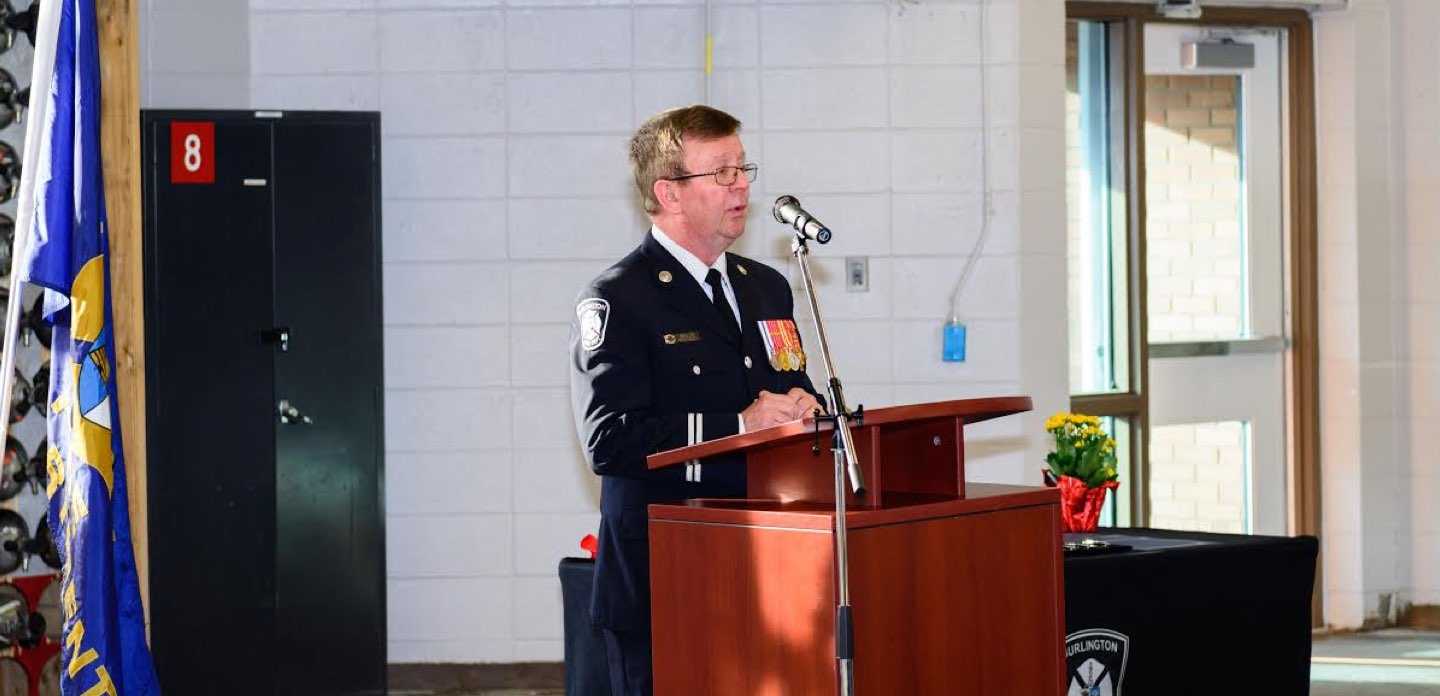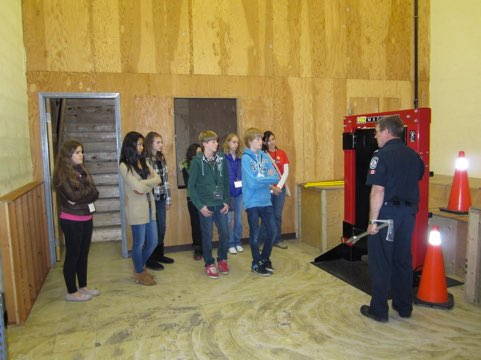Get the help you need right now 855-900-8437 Get Help Now
Get the help you need right now 855-900-8437 Get Help Now
Like many fire fighters, Mike James’ military training prepared him well for life in the fire service. However, traumatic experiences from his time in the armed forces and as an on-call fire fighter left him dealing with alcohol abuse and post-traumatic stress disorder. After eight years of sobriety, Mike has his life back and loves his job as a training officer more than ever.
“In general, when we show up at a call, it’s because someone is having a really bad day.” – Mike James
“In general, when we show up at a call, it’s because someone is having a really bad day,” said Mike James.
After spending 24 years with the fire service in Burlington, Ontario, with Local 1552, James has seen his share of accidents.
“Sometimes, it was just senseless — senseless deaths, senseless destruction, senseless family tragedy,” he said. “Telling a mother that her son has hanged himself in the basement. I believe that is what’s behind the problems I’ve had.”
Before James was a fire fighter, he served in the Canadian Armed Forces as a clearance diver. He experienced a loss few can relate to during a training dive in Victoria, British Columbia.
While navigating, James noticed he and his partner were sinking. His partner had passed out.
“I tried to bring him to the surface, but I couldn’t. I ended up having to bail out of my dive set, and he sank 180 feet to the bottom of the ocean,” said James. “We never recovered his body.”
After James was promoted out of the position he loved in the military, his brother, a fire fighter in Hamilton, Ontario, convinced him that the fire service was a great next step.
“He told me what it was all about, and it sounded like something I could do. In many ways, it sounded just like the military,” said James.
James remembers one particularly bad call in 1993 when he was a new fire fighter. A man was killed instantly by a drunk driver going the wrong way on the freeway.
“Because I was the new guy, I had to ride in the ambulance with the drunk driver, who was severely injured. He was rolling around and gurgling. I never forgot how bad that was,” he said.
It wasn’t every day that James experienced a bad call that would leave him with visions and nightmares, but the cumulative trauma led him to alcohol abuse. He had been drinking since his military days, but it got increasingly worse as he progressed in the fire department.
“When I first came to the fire service, I didn’t realize I was bringing baggage with me from my time spent in the armed forces,” James said.
The alcohol took away the feelings he was already dealing with — the loss, the loneliness, the pain of tragedy.
“When I first came to the fire service, I didn’t realize I was bringing baggage with me from my time spent in the armed forces.”

In his current position as a trainer in the Burlington fire service, James gives a safety brief to a group of trainees.
“People could see I was struggling, but they either didn’t or wouldn’t say or do anything about it. Now in the fire service, we’re working on educating people about the signs and symptoms of PTSD and addiction, but back then, it was just a ‘suck it up, buttercup’ mentality.”
James drank heavily every day he wasn’t working. Eventually, it started taking a toll. His wife kicked him out of the house. He was living on payday loans. He was worried he was one step away from losing a job he loved.
“Addictions are progressive. From the time I came into the fire department 24 years ago until eight years ago when I got help, it got worse and worse,” he said.
The turning point was when James’ brother and some of his union colleagues staged an intervention.
“When I saw that I had the support of my union and the support of my family, I said, ‘OK, I’ll get help.’
Two weeks later, he went into rehab. Once there, James began to realize that the flashbacks, nightmares and feelings he was dealing with were caused by post-traumatic stress disorder.
“I didn’t know I had PTSD, and that was what was behind my alcoholism. I hadn’t related my diving partner’s death to PTSD, but I started to piece the puzzle together.
He also learned that PTSD causes memory loss.
“When I saw that I had the support of my union and the support of my family, I said, ‘OK, I’ll get help.’”
“I’m still trying to remember some of the things I’ve blocked out, but they’re coming back slowly,” said James. “I was consumed constantly with anxiety about the future and remorse from the past.”
James says the only way rehab and aftercare will work is with a support team. He tried to fix himself, but admitted that he couldn’t do it on his own. He needed to be held accountable.
“After I decided to get help, with the support of my family at home and at the station, I felt like a huge weight had been lifted,” he said. “It was incredible.”
James leans on his 12-step program and the support it offers.
“I learned that you’re not going to be able to stop bad things from happening. There will still be disappointments, but now I can respond instead of react,” he said.
His sponsor, family and colleagues are always there for him when he feels a trigger coming. At the time of this writing, James has been sober for 2,840 days and counting.

Being in recovery has helped James overcome a fear of public speaking. Here, he hosts a graduation ceremony for the Burlington Fire Department.
Doing service work and giving back to the community has been another stepping stone James has clung to during recovery. He supports people struggling with addiction through community outreach and the 12-step meetings he attends.
“People with addictions tend to withdraw, and then the addiction takes over. Reaching my hand out and telling that person they are not alone is huge and provides hope,” said James.

James participates in “Bring Your Kids to Work Day” by giving a demonstration to a group of high school students, the children of his colleagues.
Occasionally, the thoughts and flashbacks from PTSD still creep in.
“They’re nowhere near the depth or frequency as they were before,” he said. “Eight years ago, I could only see my problems. Now, I am able to see what I am grateful for.”
James is encouraged by the steps the IAFF has taken to educate fire fighters about PTSD and its risks. He applauds his union leaders and the Canadian legislature for their efforts to improve mental health education within public service.
“If you want help, ask for it,” James said. “Asking is the hardest part. You have to get over your own pride if you want to get better.”
James says he knows many retired fire fighters who are struggling with PTSD and addiction, and he knows the new focus on mental health will help many.
“If you want help, ask for it,” James said. “Asking is the hardest part. You have to get over your own pride if you want to get better.”
To those who are struggling with addiction and PTSD, James offers words of hope.
“There are people and programs that can help. Once you deal with the addiction head on, things will fall into place to deal with the PTSD as well. You can unlock the prison that’s holding you, but you need help, and you can’t do it alone.”